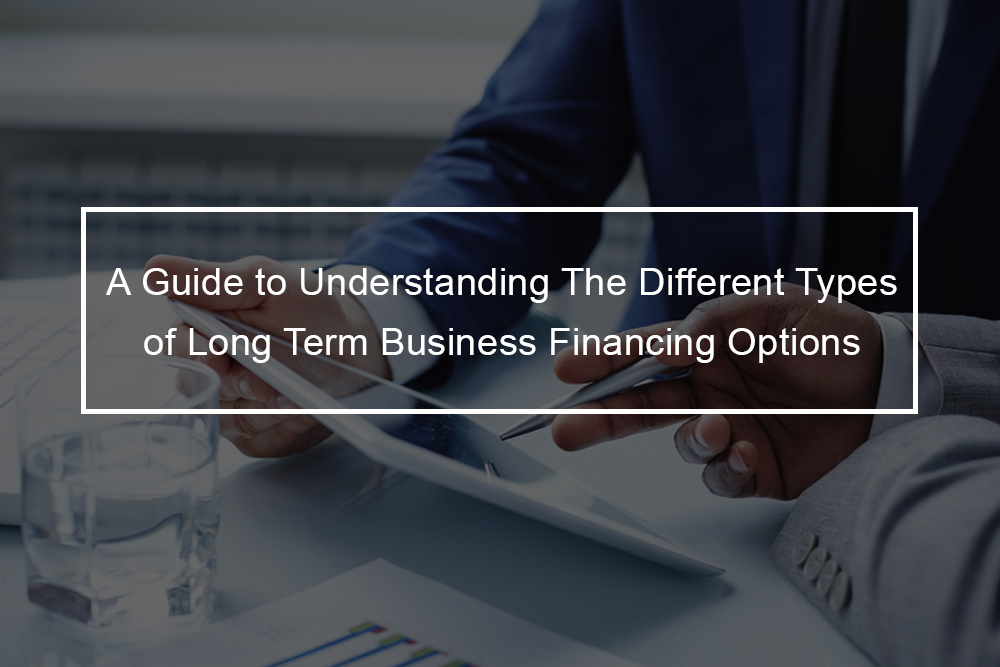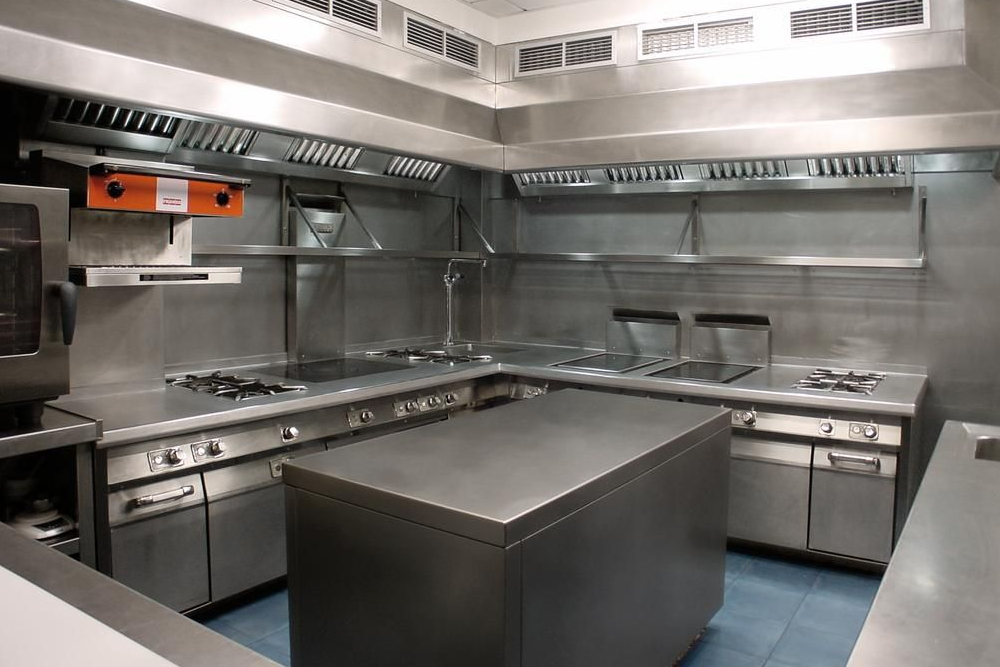Getting financing for your business is a daunting task- particularly with so many options available. When businesses search online for different kinds of financing, they might find many funding options that look dramatically different than each other. Some loans are longer, while others are shorter in term. Some are higher-rate, others are low-rate. Whereas many borrowers focus almost mainly on the rates associated with a loan, the term and amortization mustn’t be overlooked, since they will play a key role in how much a business pays per month in debt payments. Here we will look at the long-term business loans and the types that are available today.
Why consider a long-term business loan?
Long-term business loans are usually used to finance a specific, long-term project or strategic initiative for a company that is in a growth phase. And because these loans rarely have restrictions on how the money is used, they are ideal for meeting a variety of business needs—whether it is developing a new product, rolling out a marketing campaign, or opening a second store location. As a result of the longer term of the loan, this is a better fit for businesses that have been around for a while and have a strong financial history to point to. Lenders will typically look for borrowers that have been in business for three or more years (although technically you are only required to be in business for one year), with annual revenue in the six-figure range and a credit score of 600+.
Why are long-term business loans difficult to obtain?
The main reason is that long-term business loans pose an increased risk to the lender. The longer the loan takes to pay back, the higher the business’s risk to make it to the end of the terms. For example, obtaining a loan for more than five years of working capital is very difficult, mainly if the loan is unsecured or if the company lacks substantial assets. Suppose a company has commercial real estate that will be used to secure the financing. In that case, that will be useful in reducing the lender’s risk exposure, and might thus provide a longer-term facility. However, if the company is an asset-life, the probability of acquiring a long-term business loan is slim. If the company is experiencing low cash-flow or is having trouble making existing payments to creditors, the terms a lender or funder will offer them will reduce in size. So, the best chance of acquiring a long-term business loan is to have a great cash-flow and substantial assets.
Types of long-term business financing options
Long-term business loans generally provide a large amount of money upfront that is often paid back regularly. It can be quarterly, monthly, or weekly based on the lender-over several years. This kind of loan is suitable for businesses looking to invest in long-term growth, such as buying real estate, expanding office space, and purchasing equipment. Long-term debt becomes short-term when the period of repayment is less than one year.
Types of business loans you can consider when seeking to secure long-term financing
Long-term bank loans
Funding offered by the banks ends up not only being the cheapest kind of business funding, but conventional bank lenders provide the longest terms and amortizations of all small business lenders. Banks offer long-term financing for expansion, working capital, build-outs, construction, real estate, and just any other conventional funding use.
Long-term SBA loans
Conventional funding backstopped by the United States Small Business Administration is another form of long-term business loans that offers companies with bank-rate facilities to companies that would not have received funding without the SBA-enhancement. The CDC/504 and SBA 7(a) are perfect for small businesses looking for business acquisitions, new equipment purchases, commercial real estate purchases, property renovation, consolidating business debt, refinancing balloon mortgages, and general working capital purposes.
This type of long-term business loan has repayment terms that can last up to twenty-five years, based on the borrowed amount. The loan amounts available range from $100,000 to $5 million, with interest rates that typically range from 5.25 percent to 7.75 percent.
To qualify for an SBA loan, you must meet the following qualifications:
- Show that you have exhausted all funding options
- Must be in the business for at least two to three years
- No history of default payments for government-backed loans
- Good credit background
Long-term lines of credit
One of the most sought-after types of business funding that comes in the form of pre-approved financing that a business can tap into without seeking additional approvals from a lender is long-term credit lines. Long-term lines of credit are provided by conventional lenders, asset-based lenders, and SBA lenders. With a business line of credit, lenders assign you a credit limit, which you are free to make withdrawals anytime you need to. You will only have to repay for the money you have withdrawn and the interest. Based on the terms you and the lender have agreed upon, you can pay either monthly or weekly. After you have paid your loan, your credit limit will be restored to the initial amount. You can then withdraw from your line of credit again anytime the situation calls for another loan.
With a long term business line of credit, loan amounts range from $10,000 to $5 million, and interest rates are often 5,25 to 29.99 percent. New businesses usually avail this type of loan since it is easy to qualify for. They can also decide whether they want to secure the loan or not.
Long-term alternative loans
Loans offered by fintech business lenders, non-bank alternative lenders, private lenders, and marketplace commercial lenders are a decent form of financing for companies seeking working capital and other operating capital purposes for up to five years. Whereas the rates are higher than those provided by banks, and while the terms cap-out at five years, these are quality financing facilities for working capital and expansion.
Long-term merchant cash advances
Whereas technically not a loan, a business cash advance is a short-term business funding option. However, just because a merchant cash advance is shorter-term than a bank loan, that does not mean there are no long term business cash advance options available to small businesses seeking immediate financing or funding for companies with poor credit. Most long-term merchant cash advances have terms between twelve to twenty-four months, and many have paybacks that are done weekly or per month.
Equipment financing
With equipment financing, lending institutions provide you with the money you need to purchase or upgrade equipment. Repayment terms are often made through affordable scheduled payments. This indicates you will not have to pay for the equipment out-of-pocket. The upside of equipment funding is that you will not have to present collateral to secure the loan. The equipment you purchase using the loan will serve as the guarantee. This indicates that if you default on payments, the lender or bank can seize the equipment to pay for the loan. The loan amounts will range anywhere from $25,000 to $5 million. At the same time, the interest rates run from 5.25 to 24.99 percent.
Multi-year term loan
A multi-years term loan has a repayment schedule of two to five years. Apart from covering business expansion costs, a multi-year term loan offers you sufficient cash flow for everyday business operations and comes with low monthly payments. The loan amounts range from $25,000 to $5 million, and the interest rate ranges from 5.99 to 18.99 percent.
Asset-based loan
Just as the name implies, an asset-based loan is a kind of funding where assets are used to guarantee the loan. Most lending institutions regard collateral like marketable securities, equipment accounts receivable, real estate, inventory, and intellectual property (accounts and inventory being the most significant) as acceptable assets that can secure this kind of loan. The loan amounts can range anywhere from $25,000 to $10 million, and interest rates are often set at seven-percent to twelve percent.
Long-term business loan calculator
It is absolutely vital to understand the full cost of a long term business loan before signing your loan contract. Before borrowing, use a long-term business loan calculator to get an overview of what to expect from your business loan. This calculator estimates the total amount of interest that will be paid, monthly payments, and the total cost of the loan. Knowing the figures before applying for a loan is a key step for any financially-savvy business owner.
Take away for business owners
As you can see, there are many options available to small businesses seeking long term business loans. By acquiring the longest term possible, you will set your business up for the best chance of success since you will be spending less per month on debt payments, and the additional money saved can be put back into the business to assist with growth. If you are an entrepreneur or a small business owner seeking long-term business financing, the above options are sure to address your business’s needs. Make sure you know more about it before applying. Even though loans are of the main help to your business, it will only be able to do so much if used responsibly.











